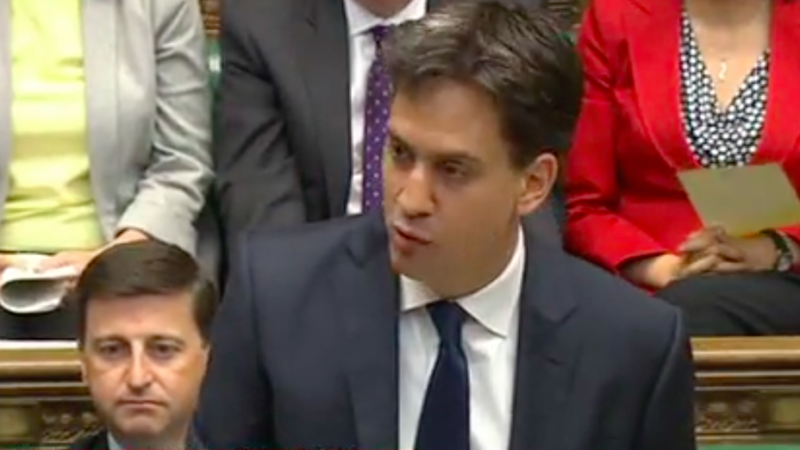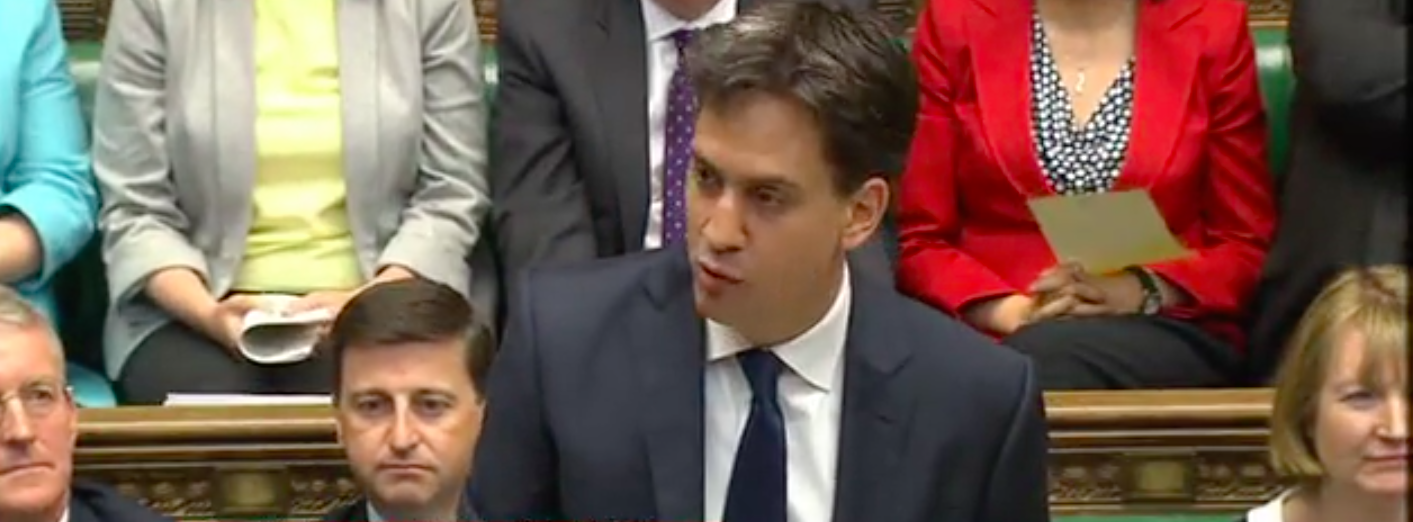

Four years after becoming leader of the Labour party, Ed Miliband has yet to offer his vision for foreign policy under a Labour government. It isn’t that extraordinary – Blair himself broached the issue only just before victory in 1997, but given the state of the world it has renewed urgency.
It took political courage for Miliband this weekend to break Britain’s long-standing consensus and criticise Israel for its bombardment of Gaza. But condemnation isn’t a policy, and now Mr Miliband needs to go further and explain what Labour would actually do in the Middle East. And then he needs to wrap that up in a broader narrative that defines his vision.
Here are some suggestions. First, Miliband should call on Israel to negotiate and talk directly with Hamas. It would be consistent with his approach of favouring negotiations and talks over military incursions and diplomatic shadow-boxing.
Secondly, Labour should also call for a review of export licenses to Israel. In fact Miliband himself wrote in 2011: “we should also examine our arms sales to ensure that UK weaponry is not used for the repression of people”. British foreign policy should not be dictated by commercial gain, as the Labour leader himself added. If we apply those rules to Russia then we must apply them to Israel. Besides, Margaret Thatcher imposed a 12-year embargo on arms sales to Israel in 1982.
Third, Labour should pledge to work with the EU and USA to set out an independent detailed peace road-map for Israel and Palestine, which includes rolling back illegal Israeli settlements. It is only now dawning on the foreign policy commentariat that Israel keeps killing the peace process, and that it not committed to the process. So Britain must seize the initiative through hard-headed diplomacy rather than continuing with the ruinous status quo.
None of these suggestions are particularly outside mainstream opinion, and all recognise the reality that existing options have been exhausted. Its time for someone to take a bold stance to break the impasse, and Miliband can be that leader. As the Telegraph’s Mary Riddell recently wrote, he must “rouse himself from the chloroform of caution” on foreign policy.
The problem, of course, is that the shadow of Tony Blair still hangs above British foreign policy. Any Labour leader has to contend with a public and a Labour party that is highly suspicious of foreign intervention and military involvement.
But Miliband’s unwillingness to rush into war, as with Syria, is part of his strength, not a weakness as the press likes to think. He likes to deliberate and think and explore all options before making decisions, rather than being the leader who places gimmicks and posturing over serious solutions.
What Miliband hasn’t solved is the ‘Putin problem’. “He just doesn’t look like the kind of guy who could stand tall on the international stage and take on Putin” – a Labour sympathising cabbie told me last week. That’s a fair point, I retorted.
But dealing with Putin requires credibility on the international stage (which Cameron keeps losing with successive gimmicks like the fight over Juncker), as well as careful consideration of how to outmaneuver opponents like him. A shallow operator like Cameron may look good in international photo opportunities, but his achievements amount to zilch. That said, it’s clear that the perception problem persists.
So this is Miliband’s moment. He needs to show not just courage and compassion, but also demonstrate strength and steel in achieving his foreign policy objectives. As a respected Labour commentator put it to me yesterday: “One Nation is great… but there has to be more to it. What about other nations?”
That question is in urgent needs of answering.




More from LabourList
‘Labour must confront the crisis of first past the post before it’s too late’
Unite to debate affiliation with Labour Party at conference next year
Miliband tops LabourList Cabinet league table, with gender divide in PM approval